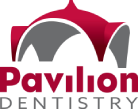A family dentist in St. Catharines witnesses countless situations where early detection saves patients from extensive treatments and significant discomfort. Many patients wonder what exactly happens during their regular dental visits and how problems are identified before they become painful or costly. This comprehensive guide shares the detective work that occurs during routine appointments and explains why a family dentist plays such a crucial role in maintaining oral health.
Why Family Dentist Early Detection Matters
Your family dentist serves as the first line of defence against oral health problems. During each visit, we conduct systematic examinations that go far beyond checking for cavities. Early detection allows us to address issues when they’re small, manageable, and less expensive to treat.
Most patients are surprised to learn that many serious oral health conditions develop silently. Pain often signals that a problem has progressed significantly. This is why regular visits to your family dentist are essential, even when you feel perfectly fine.
Comprehensive Oral Cancer Screenings: What We Look For
Oral cancer screening represents one of the most critical services your family dentist provides. During every routine examination, we systematically check your mouth, throat, and neck for any unusual changes or growths.
We examine the soft tissues of your mouth, including your tongue, cheeks, lips, and gums. Your family dentist looks for red or white patches, unusual lumps, or areas that feel different from surrounding tissues. We also check lymph nodes in your neck for swelling or tenderness.
Warning signs that catch our attention include persistent sores that don’t heal within two weeks, patches of rough or thickened tissue, and areas of numbness or unusual sensitivity. Changes in voice, difficulty swallowing, or persistent bad breath can also indicate problems requiring further investigation.
The screening process is completely painless and takes just a few minutes. However, this brief examination can literally save lives by identifying cancer in its earliest, most treatable stages.
Early Detection of Common Dental Problems
Cavity Prevention Through Early Intervention
Your family dentist uses several techniques to identify cavities before they cause pain or visible damage. We look for early signs of enamel breakdown, including white spots or areas of discolouration that indicate mineral loss.
Digital X-rays reveal cavities between teeth that aren’t visible during visual examination. These images show us decay in its earliest stages, allowing us to recommend preventive treatments like fluoride applications or dietary modifications before drilling becomes necessary.
Small cavities caught early often require minimal intervention. Sometimes, remineralization treatments can actually reverse very early decay, eliminating the need for fillings entirely.
Gum Disease Detection and Management
Gum disease progresses quietly, making regular monitoring by your family dentist essential. We measure pocket depths around each tooth, looking for areas where gums have pulled away from tooth surfaces.
Healthy gums typically have pocket depths of 1-3 millimetres. Deeper pockets indicate inflammation and potential bone loss. We also check for bleeding during gentle probing, which often signals early gum disease even when patients notice no symptoms.
Early-stage gum disease responds well to professional cleanings and improved home care. However, without intervention from your family dentist, it progresses to more serious forms requiring extensive treatment.
Bite Problems and TMJ Issues
Your family dentist evaluates how your teeth fit together and checks for signs of grinding or clenching. Uneven wear patterns on teeth often reveal bite problems that can lead to jaw pain, headaches, and tooth damage.
We examine your jaw joints for clicking, popping, or restricted movement. Early intervention with bite adjustments or protective appliances can prevent these issues from developing into chronic pain conditions.
Advanced Diagnostic Tools in Modern Family Dentistry
Digital X-Ray Technology
Digital X-rays provide your family dentist with detailed images using significantly less radiation than traditional film X-rays. These images appear instantly on computer screens, allowing us to examine them immediately and share findings with you during your appointment.
Digital technology enables us to enhance images, adjusting contrast and brightness to better visualize problem areas. We can also store these images electronically, making it easy to compare changes over time.
Intraoral Cameras
Intraoral cameras allow your family dentist to capture detailed photographs of individual teeth and areas of concern. These tiny cameras provide magnified views of your mouth, helping us identify problems that might be missed during standard visual examination.
The images help patients understand their oral health conditions better. When you can see what we see, it becomes easier to understand treatment recommendations and make informed decisions about your care.
Laser Decay Detection
Some family dentist offices use laser technology to identify early decay that isn’t yet visible on X-rays or during visual examination. These devices measure changes in tooth structure that indicate the beginning stages of cavity formation.
This technology helps us catch problems at their earliest stages, often when remineralization treatments can still reverse the damage.
The Importance of Regular Visits
Consistency in care allows your family dentist to establish baseline measurements for your oral health. We track changes in gum pocket depths, note areas prone to plaque buildup, and monitor any unusual findings over time.
Regular appointments, typically every six months, ensure that we catch problems early. Some patients with higher risk factors may benefit from more frequent visits to maintain optimal oral health.
Taking Action on Early Findings
When your family dentist identifies potential problems early, treatment options are typically less invasive and more comfortable. Small cavities require smaller fillings, early gum disease responds to professional cleanings, and bite problems can often be corrected with simple adjustments.
Early intervention also costs significantly less than treating advanced problems. A small filling costs much less than a crown or root canal treatment.
Your Partnership in Early Detection
While your family dentist provides professional monitoring and care, your daily habits play an equally important role in maintaining oral health. Regular brushing, flossing, and using appropriate oral care products support our efforts to keep your mouth healthy.
Pay attention to changes in your mouth between visits. Contact your family dentist if you notice persistent pain, swelling, bleeding, or any unusual changes in your oral tissues.
Early detection represents the foundation of modern dental care. Your family dentist combines clinical expertise with advanced technology to identify problems before they cause pain or require extensive treatment. Regular visits, combined with good home care, provide the best foundation for lifelong oral health.
At Pavilion Dentistry, we’re committed to providing comprehensive examinations that protect your oral health. If you haven’t seen a family dentist recently, we encourage you to schedule an appointment for a thorough evaluation.
Contact Pavilion Dentistry today to schedule your comprehensive oral health examination:
Pavilion Dentistry
59 Queen Street
St. Catharines, ON L2R 5G8
Phone: 905-641-2242


0 Comments